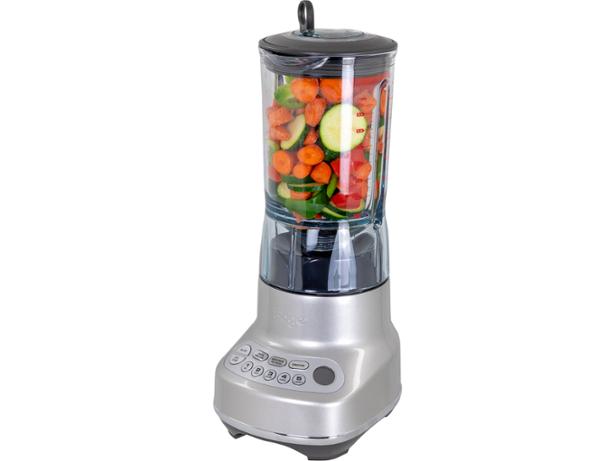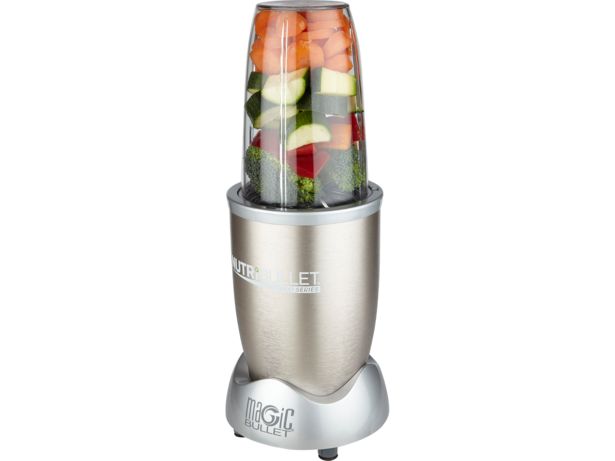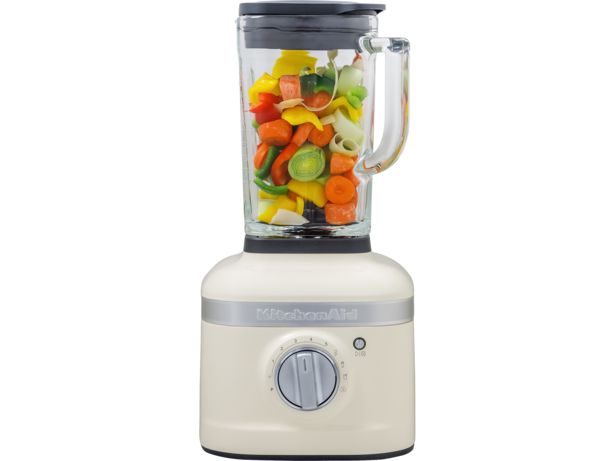Blender, juicer or smoothie maker?

Want to make tasty drinks at home but can't decide whether you need a blender, juicer or smoothie maker? We'll help you figure out what's best for you, including whether the popular Nutribullet is the ultimate solution.
Should you get a jug blender, personal blender or smoothie maker? Is juicing better than blending? Is a Nutribullet your best bet? And how much do you need to spend to get good results? We answer the questions retailers don't to help you find the right product for you - and save money.
On this page you'll find a breakdown of the pros and cons of blenders and juicers, plus our guide to alternatives such as smoothie makers and mini blenders. But first, take our quick quiz below to find out if a juicer or blender suits you best.
To find out more about blenders, including what features to look for and how much to spend, read our guide to the best blenders.
Jug blender pros and cons

The classic jug blender has long been a kitchen staple, and it’s no wonder why. They can whip up smoothies and shakes in seconds, and can be used for a variety of things from soups and sauces to homemade mayo. A good one will also be able to crush ice and blend together tough ingredients such as nuts, seeds and leafy greens.
Pros:
- Versatile; can be used for a wide range of smoothies, soups, cocktails, sauces and even ice cream
- Most models can also chop, purée, and crush ice
- Some can heat or cook soup as well as blending
- Uses the whole fruit, so less is wasted
- Can add other ingredients to the mix such as dairy, nuts and protein powders
- Usually easy to clean
- Wide range of options and price points, with Best Buy blenders available from around £30
Cons:
- Not really suitable for making juice, although some come with filter sieves that are supposed to separate out the pulp
- Can be bulky to store
- Need to get the right balance of ingredients to avoid a really thick or bitty drink
- Less good for predominantly veg-based drinks
Know what you need? Head straight to our jug blender reviews to find the best product for your budget.
Mini blender pros and cons

Mini, or personal blenders - such as the Nutribullet - are a popular option for those who want to make one or two portions in a hurry. Most come with a travel lid so you can easily convert the blending cup into a travel mug and have your smoothie on the go.
Pros:
- Blends straight into a cup you can drink from
- Cups usually have lids so you can easily transport or store your smoothie
- Some come with sports bottles – ideal for taking a protein-based smoothie to the gym
- More compact and easier to store than a jug blender
- Usually very simple to use - with just one press-and-hold button, or even no buttons, just hold down to blend
- Tend to be easy to clean
- Best buy mini blenders available for less than £50
Cons:
- Smaller than jug blenders, often with a maximum capacity of around 600ml, so you can't blend bigger batches in one go
- Most lack the extra features more expensive models have - such as timers, automatic programs and multiple speed settings
- Can’t blend for very long, usually a maximum of 60 seconds – although you shouldn’t need to blend for longer than that
- Can’t blend hot food; the pressure can’t escape and builds up as a result, becoming potentially dangerous
- Models with skinny sports-style bottles can be harder to clean
Get the lowdown on the full range in our guide to the best Nutribullets or head to our mini blender reviews to see which models we recommend.
Juicers pros and cons

Juicing can be a simple way to include more varied fruit and veg in your diet. A good juicer will speedily extract all the juice from your fruit and veg, making a delicious fresh drink, and be easy to clean up afterwards.
Pros:
- Makes smooth fresh juice, with pulpy options available
- Some can be used for other food prep tasks such as making coulis, grinding coffee beans and mincing meat
- Large range to choose from, with different sizes, features and prices
- Particularly good for vegetable-based drinks, using ingredients such as carrots and beetroot
- Best Buy juicers available for around £40
Cons:
- Not usually suitable for making smoothies, although some pricier models come with attachments to help you make thicker drinks
- Not good at dealing with soft or starchy fruits, such as bananas and berries
- Usually have at least five separate parts that need cleaning
- You need quite a lot of raw ingredients to make a decent amount of juice
- Can't generally handle other smoothie ingredients, such as nuts or dairy
- Can be large and bulky
Discover the difference between centrifugal and masticating juicers and see the top juicers from our tests in our guide to the best juicers.
Smoothie makers: what's the difference and should you buy one?
Smoothie makers are essentially jug blenders with taps that you can dispense your blended drinks from, so you can in theory blend your drink and dispense it straight into your glass.
They aren’t very common anymore, partly because the small tap opening tended to be prone to clogging and tricky to clean. If you want a speedy and convenient smoothie-making experience, a mini blender is a better option.
See the best mini blenders from our lab tests.
Smoothies or juices - which is better?
Wanting to start a health kick and not sure which type of drink is better for you? If you just want more veg in your diet, a juicer is likely to be a better option, as you can easily juice hard root vegetables such as carrots, beetroot and more. However, juicers dispense with the fibre and pulp, which are also good for you.
We tested a selection of blenders and juicers to see how well they extracted different vitamins and minerals, and found that no one type was best overall.
Whichever product you choose, try to mix up your fruit and veg for a less sugary drink, and bear in mind drinking too many juices or smoothies isn't great for your teeth.



